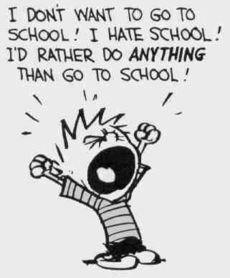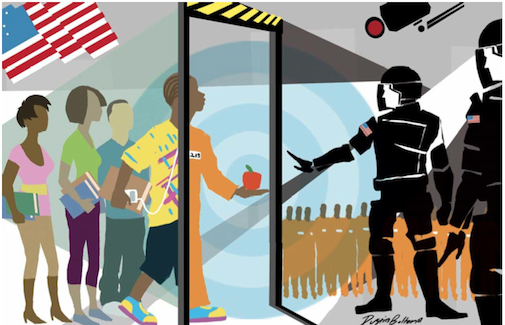“If freedom, personal responsibility, self-initiative, honesty, integrity, and concern for others rank high in your system of values, and if they represent characteristics you would like to see in your children, then you will want to be a trustful parent. None of these can be taught by lecturing, coercion, or coaxing. They are acquired or lost through daily life experiences that reinforce or suppress them. You can help your children build these values by living them yourself and applying them in your relationship with your children. Trust promotes trustworthiness. Self-initiative and all of the traits that depend on self-initiative can develop only under conditions of freedom.”
― Peter Gray, Free to Learn: Why Unleashing the Instinct to Play Will Make Our Children Happier, More Self-Reliant, and Better Students for Life
The following essay is by Dr.Peter Gray:
 Someone recently referred me to a book that they thought I’d like. It’s a 2009 book, aimed toward teachers of grades K through 12, titled Why Don’t Students Like School? It’s by a cognitive scientist named Daniel T. Willingham, and it has received rave reviews by countless people involved in the school system. Google the title and author and you’ll find pages and pages of doting reviews and nobody pointing out that the book totally and utterly fails to answer the question posed by its title.
Someone recently referred me to a book that they thought I’d like. It’s a 2009 book, aimed toward teachers of grades K through 12, titled Why Don’t Students Like School? It’s by a cognitive scientist named Daniel T. Willingham, and it has received rave reviews by countless people involved in the school system. Google the title and author and you’ll find pages and pages of doting reviews and nobody pointing out that the book totally and utterly fails to answer the question posed by its title.
Willingham’s thesis is that students don’t like school because their teachers don’t have a full understanding of certain cognitive principles and therefore don’t teach as well as they could. They don’t present material in ways that appeal best to students’ minds. Presumably, if teachers followed Willingham’s advice and used the latest information cognitive science has to offer about how the mind works, students would love school.
Talk about avoiding the elephant in the room!
Ask any schoolchild why they don’t like school and they’ll tell you. “School is prison.” They may not use those words, because they’re too polite, or maybe they’ve already been brainwashed to believe that school is for their own good and therefore it can’t be prison. But decipher their words and the translation generally is, “School is prison.”
Let me say that a few more times: School is prison. School is prison. School is prison. School is prison. School is prison.
Willingham surely knows that school is prison. He can’t help but know it; everyone knows it. But here he writes a whole book entitled “Why Don’t Students Like School,” and not once does he suggest that just possibly they don’t like school because they like freedom, and in school they are not free.
I shouldn’t be too harsh on Willingham. He’s not the only one avoiding this particular elephant in the room. Everyone who has ever been to school knows that school is prison, but almost nobody says it. It’s not polite to say it. We all tiptoe around this truth, that school is prison, because telling the truth makes us all seem so mean. How could all these nice people be sending their children to prison for a good share of the first 18 years of their lives? How could our democratic government, which is founded on principles of freedom and self-determination, make laws requiring children and adolescents to spend a good portion of their days in prison? It’s unthinkable, and so we try hard to avoid thinking it. Or, if we think it, we at least don’t say it. When we talk about what’s wrong with schools we pretend not to see the elephant, and we talk instead about some of the dander that’s gathered around the elephant’s periphery.
But I think it is time that we say it out loud. School is prison.
If you think school is not prison, please explain the difference.
The only difference I can think of is that to get into prison you have to commit a crime, but they put you in school just because of your age. In other respects school and prison are the same. In both places you are stripped of your freedom and dignity. You are told exactly what you must do, and you are punished for failing to comply. Actually, in school you must spend more time doing exactly what you are told to do than is true in adult prisons, so in that sense school is worse than prison.
At some level of their consciousness, everyone who has ever been to school knows that it is prison. How could they not know? But people rationalize it by saying (not usually in these words) that children need this particular kind of prison and may even like it if the prison is run well. If children don’t like school, according to this rationalization, it’s not because school is prison, but is because the wardens are not kind enough, or amusing enough, or smart enough to keep the children’s minds occupied appropriately.
But anyone who knows anything about children and who allows himself or herself to think honestly should be able to see through this rationalization. Children, like all human beings, crave freedom. They hate to have their freedom restricted. To a large extent they use their freedom precisely to educate themselves. They are biologically prepared to do that. That’s what many of my previous posts have been about (for an overview, see my July 16, 2008, post). Children explore and play, freely, in ways designed to learn about the physical and social world in which they are developing. In school they are told they must stop following their interests and, instead, do just what the teacher is telling them they must do. That is why they don’t like school.
As a society we could, perhaps, rationalize forcing children to go to school if we could prove that they need this particular kind of prison in order to gain the skills and knowledge necessary to become good citizens, to be happy in adulthood, and to get good jobs. Many people, perhaps most people, think this has been proven, because the educational establishment talks about it as if it has. But, in truth, it has not been proven at all.
In fact, for decades, families who have chosen to “unschool” their children, or to send them to the Sudbury Valley School (which is, essentially, an “unschool” school) have been proving the opposite (see, for example, my August 13, 2008, post). Children who are provided the tools for learning, including access to a wide range of other people from whom to learn, learn what they need to know–and much more–through their own self-directed play and exploration. There is no evidence at all that children who are sent to prison come out better than those who are provided the tools and allowed to use them freely. How, then, can we continue to rationalize sending children to prison?
I think the educational establishment deliberately avoids looking honestly at the experiences of unschoolers and Sudbury Valley because they are afraid of what they will find. If school as prison isn’t necessary, then what becomes of this whole huge enterprise, which employs so many and is so fully embedded in the culture (see my posts on Why Schools Are What they Are)?
Willingham’s book is in a long tradition of attempts to bring the “latest findings” of psychology to bear on issues of education. All of those efforts have avoided the elephant and focused instead on trying to clean up the dander. But as long as the elephant is there, the dander just keeps piling up.
In a future post I’ll talk about some of the history of psychology’s failed attempts to improve education. Every new generation of parents, and every new batch of fresh and eager teachers, hears or reads about some “new theory” or “new findings” from psychology that, at long last, will make schools more fun and improve learning. But none of it has worked. And none of it will until people face the truth: Children hate school because in school they are not free. Joyful learning requires freedom.








Great article!
I teach high school students. Though I try to remove the compulsory feeling, the culture is overwhelming. Teachers are still better than websites or software in my opinion. We tend to remember those teachers who were unique and had passion. There must be a way to combine the personal connection of teachers with an open, flexible classroom.
Besides teaching, I’ve been involved in the BSA for over a decade. Most summer camps run scheduled merit badge times. However, the last few years I’ve attended camps where they have “free program time”. During that time, a scout can go to whatever area and begin any badge they want. They can stay as long as they like. At first, I thought the results would be terrible, but my boys earned three times as many badges as they did at other camps. They didn’t need to be coaxed to go either.
The system causes novel challenges for instructors, but the payoff is clear.
I would love to work toward a system similar to this for our public education system.Great article!
I teach high school students. Though I try to remove the compulsory feeling, the culture is overwhelming. Teachers are still better than websites or software in my opinion. We tend to remember those teachers who were unique and had passion. There must be a way to combine the personal connection of teachers with an open, flexible classroom.
Besides teaching, I’ve been involved in the BSA for over a decade. Most summer camps run scheduled merit badge times. However, the last few years I’ve attended camps where they have “free program time”. During that time, a scout can go to whatever area and begin any badge they want. They can stay as long as they like. At first, I thought the results would be terrible, but my boys earned three times as many badges as they did at other camps. They didn’t need to be coaxed to go either.
The system causes novel challenges for instructors, but the payoff is clear.
I would love to work toward a system similar to this for our public education system.
Great article!
I teach high school students. Though I try to remove the compulsory feeling, the culture is overwhelming. Teachers are still better than websites or software in my opinion. We tend to remember those teachers who were unique and had passion. There must be a way to combine the personal connection of teachers with an open, flexible classroom.
Besides teaching, I’ve been involved in the BSA for over a decade. Most summer camps run scheduled merit badge times. However, the last few years I’ve attended camps where they have “free program time”. During that time, a scout can go to whatever area and begin any badge they want. They can stay as long as they like. At first, I thought the results would be terrible, but my boys earned three times as many badges as they did at other camps. They didn’t need to be coaxed to go either.
The system causes novel challenges for instructors, but the payoff is clear.
I would love to work toward a system similar to this for our public education system.
[…] Many of these issues would go away if not for the true problem in this situation, which is public education. If you’re out to fight for truth and justice, how about admitting that public school is more about indoctrination than about education? As Peter Gray, author of numerous books on childhood education, put it: […]